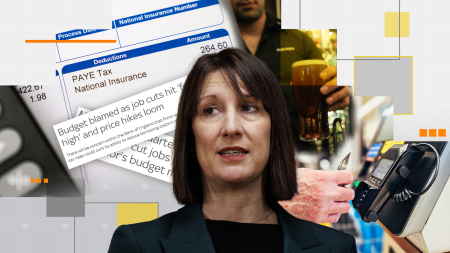The Rise of First-Time Homebuyers in 2024: A Resurgent Market
The housing market in 2024 witnessed a significant surge in the number of first-time homebuyers, marking a rebound from the previous year’s decline. According to data released by Halifax, one of the UK’s leading banks, 341,068 individuals purchased their first properties in 2024, reflecting a 19% increase compared to 2023. This upward trend offers a glimmer of hope for the housing market, which had experienced a notable drop in 2023, with first-time buyers decreasing by 22%. While the 2024 figures are encouraging, they still fall short of the pre-pandemic levels, as 2022 recorded 367,870 first-time buyers. This rebound suggests that factors such as improved mortgage affordability and stabilizing interest rates have played a crucial role in enabling more individuals to take their first steps onto the property ladder.
The Changing Profile of First-Time Buyers
The profile of first-time buyers has undergone significant changes over the past decade. On average, first-time buyers in 2024 were 33 years old, a full two years older than their counterparts from a decade ago. This shift underscores the growing challenges individuals face in achieving homeownership, particularly in terms of saving for deposits and meeting escalating property prices. The average deposit required for a first home in 2024 was £61,090, a substantial sum that highlights the financial barriers many potential buyers must overcome. Furthermore, the average price of a first home stood at £311,034, a figure that continues to rise, making it increasingly difficult for individuals, especially those with a single income, to afford.
Mortgage Affordability and the Role of Interest Rates
The increase in first-time buyers in 2024 can be attributed, in part, to improvements in mortgage affordability. As interest rates eased and stabilized, potential buyers enjoyed greater certainty and more manageable mortgage payments. The Bank of England’s decision to cut interest rates to 4.5% earlier in the year, marking the third consecutive quarter of reductions, further supported this trend. These lower rates have made borrowing more accessible and affordable for many aspiring homeowners. Amanda Bryden, head of mortgages at Halifax, noted that these changes likely contributed to the rise in first-time buyers, as they provided a more favorable environment for those looking to purchase their first home.
The Challenges of Homeownership: deposits and Stamp Duty
Despite the positive trends, the path to homeownership remains fraught with challenges. The average deposit of £61,090 and the average house price of £311,034 illustrate the significant financial hurdles that first-time buyers must navigate. Many individuals are finding it necessary to pool resources, with the majority of first-time buyers opting to purchase homes jointly rather than alone. This trend is not surprising, given the high costs involved. However, while these joint efforts help make homeownership a reality for many, they also highlight the ongoing struggles faced by those relying on a single income.
The Impact of Stamp Duty Changes on First-Time Buyers
Another significant factor affecting first-time buyers is the upcoming reduction in the stamp duty threshold. Chancellor Rachel Reeves announced in her budget that the "nil rate" stamp duty band for first-time buyers would decrease from £425,000 to £300,000 starting from 1 April. While this change aims to simplify the tax system, it is expected to have a negligible short-term impact on improving affordability for first-time buyers. In fact, some experts argue that the reduction could further complicate the market, potentially pricing out some buyers who would have previously benefited from the higher threshold.
The Road Ahead for First-Time Buyers
Looking ahead, the outlook for first-time buyers remains mixed. While Halifax anticipates modest house price growth in the coming year, the challenges posed by high deposits, increasing property prices, and changes to stamp duty thresholds are likely to persist. For many, achieving homeownership will continue to require careful planning, significant savings, and, in many cases, the support of a partner or co-buyer. Despite these obstacles, the rebound in first-time buyer numbers in 2024 offers a hopeful sign that, with the right market conditions and policy support, more individuals can realize their dream of owning their first home.















